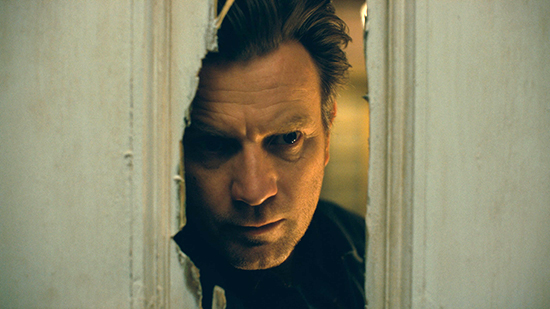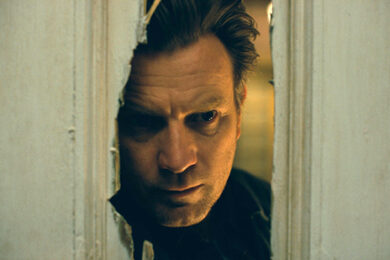There’s an interesting, blink-and-you’ll-miss-it exchange in a recent episode of the Shock Waves horror movie podcast. Co-host, and co-producer of the recent Halloween remake, Ryan Turek, asks the episode’s guest, screenwriter Patrick Melton, what horror he’s been exposing his kids to recently:
“I tell you, one kid’s just turned 13 and one’s 11, and they’re getting pretty snooty about their horror. Even Halloween.”
“Our Halloween or John (Carpenter)’s?” Replies Turek.
“Your Halloween.”
There’s a moment of silence, followed by a slightly mournful groan from Turek.
“My thirteen year old is like ‘Well, it’s not… like… scary…’” continues Melton.
“Oh really?”
“’Yeah, It’s Michael Myers, you know?’”
“Oh… I like that, I like that…”, replies Turek, sounding like someone trying to respond enthusiastically to a birthday present that he does not like very much at all.
It’s a telling moment, from the inside of an industry that has been reaping unprecedented levels of success in the last few years. Horror is big business now. Conventions are selling out, films are – mostly – cleaning up at the box office, and gushing reviews and awards success are shepherding the genre into a new era of big bucks and respectability. But there are signs of wear and tear, perhaps pointing to a failure on the part of the industry (and horror is an industry in itself now) with its own studios, publications and dedicated workers, to move forward in any meaningful way.
I’ve made no secret of the fact that I thought that 2018 was one of the best years for horror cinema of all time, rivalling and exceeding most previous ‘golden years’ in terms of quality and originality. 2019, however, has left me with nagging doubts. There have been fantastic films, of course – a list of all the movies I’ve enjoyed would be longer than this article can allow, and any year that featured a killer alligator flick, Alexander Aja’s Crawl, opening wide (ha!) is cause for celebration – but the worry is that the industry might be falling back into bad habits, potentially leaving new audiences behind in a welter of reboots, sequels and franchises. Just the kind of ‘guaranteed money-makers’ that in this day and age are anything but ‘guaranteed’ – and side-lining new voices and creative approaches in favour of throwing good money after bad, at a series of familiar properties.
The box-office failure of director Mike Flanagan’s Shining sequel Doctor Sleep in this context seems telling. There’s been a lot of speculation as to the reasons for it flopping. A younger audience that couldn’t care less about a sequel to a film made 40 years ago? Signs of Stephen King fatigue amongst audiences already rinsed dry by two massive It adaptations? The failure to release the film in time for Halloween? Or, most worryingly, perhaps a growing level of boredom with the horror genre itself? Whatever the reason, there are clearly lessons to be learned by studios and creators, looking to provide the kinds of scares that fill the multiplexes.
One thing, however, is very clear. In a recent interview, Flanagan leaves no room for doubt about his respect not only for the source material and its prequel, but also for King himself. King famously dislikes Kubrick’s adaptation of The Shining, feeling it misplaced the soul of his novel, sacrificing it for the director’s trademark nihilism and icy remove. When asked about the challenge of delivering a sequel, Flanagan said:
“The amount of specificity that King has spoken about Kubrick’s film with was very helpful, because I could look at the things that upset him and I had a list of what not to do. The possibility that I could make this movie and he could come out of it feeling that same way that he felt about The Shining… I don’t know that I would have been able to recover from that.”
This level of respect being offered to an original work’s author, focused on making sure intentions are honoured and dues are paid, although laudable in many ways, is also indicative of a slightly deadening level of politeness in mainstream horror.
King is a decades-long master of the genre, and his influence is undeniable. He is possibly the major architect of the contemporary scare. Fear of clowns? King. Ancient Indian burial grounds? King. Small towns hiding dark supernatural secrets? Okay, that goes back a bit further, but I bet you’re thinking of Derry, Maine or Castle Rock right now. But with this looming and inescapable influence comes a need for later disciples to pay respects to their illustrious forebears – and it could be precisely this level of forelock tugging that is giving the current horror landscape its curious aridity.
The following is just a partial list of the forthcoming Stephen King adaptations we have to look forward to: In production or pre-production there is currently Rest Stop, Firestarter, Mile 81, The Tommyknockers, Mr Mercedes, The Outsider, The Dark Tower and The Stand, amongst others. All of these following hot in the heels of recent adaptations of In the Tall Grass, Gerald’s Game, Pet Semetary, IT, The Dark Tower (they are not going to leave that one alone, are they?), and so forth. Several of these have been adapted already, to greater or lesser success, and I would wager that were the architects of these adaptations asked what their motivation was in returning to the books, their answers would have to do with finally giving the originals the respect they deserved. Of finally, once and for all, doing it right.
Anyone who saw this year’s Pet Semetary will know how that impulse can lead to muddled, dissatisfying results.
Aside from the seemingly endless King adaptations, this tasteful level of respect can be seen across the industry. David Gordon Green’s Halloween reboot, as enjoyable as it was, offered no real surprises in construction, style or scares. Basically offering a Force Awakens-style experience in audience reassurance (“It’s okay, things are back to normal now. The cult of Thorn never existed.”). Sadly, I have to agree with Patrick Melton’s 13-year-old son: Halloween was just not that scary. Entertaining? Sure. Well made? Undoubtedly. But not challenging, surprising, innovative or frightening. I had a good time at the cinema, and when I got home I made myself some toast.
There’s an interesting UK-based parallel to all this respectful spookery, in the shape of the BBC’s various attempts to replicate their Ghost Story for Christmas strand of the late ‘60s and early ‘70s. Though meticulously crafted, these various adaptations – often of MR James stories, often themselves already adapted for the BBC decades ago – don’t move the viewer to much of anything at all. Respectful, cautious and almost totally lacking the chills of their source material or predecessors, these nostalgia-fuelled attempts to replicate the frights of a ‘70s childhood are doomed to failure, precisely because of their fussy approach.
Leaving aside the questionable artistic value of remakes, sequels and reboots in general – and in this genre there have been so many instances of them being instant classics that it’s not even an argument worth having – if there’s one thing that does nothing to strike fear into the hearts of viewers it’s the constant insider baseball of sly winks, throwbacks and shout-outs that seem to be becoming such a part of the mainstream horror movie. The drive to create these easily accessible experiences seems to have less to do with providing genuine, original scares and more to do with directors, writers and producers attempting to replicate what frightened them as kids. That isn’t healthy for the genre, and it certainly isn’t going to help provide an easy access point for new fans, who, let’s face it, really should not give a fuck about a sequel to a film made 40 years ago. Remember the box office failure of Blade Runner 2049? They don’t.
Of course there are innovative, noteworthy occurrences happening in horror all the time nowadays. The success of films like Get Out and The Babadook has thrown the gates open for a whole range of directors and writers of different backgrounds to plunge into the genre, telling stories of specific terrors that haven’t been replicated to the point of parody. Production companies like Daniel Noah and Elijah Wood’s Spectrevision are successfully building a recognisable aesthetic: modern, self-aware, and unthinkable at any other time than right now. And the current parallel boom in horror fiction has led to modern writers such as Adam Nevill and Nathan Ballingrud being adapted successfully for the big and small screen. The underground is thriving, and the shoots of that success are infiltrating the mainstream, illuminating new paths for a genre that needs surprise and excitement to exist in any meaningful form.
In many of the great horror stories, it is the past that needs to be feared. The vengeance-filled revenant, the ancestor from beyond the tomb, the awakening of an ancient evil, all lead to destruction, negativity and the paralysis of fear. It would be a great shame if the horror industry failed to learn this lesson, dooming us to a seventh circle of listless shock and enervating respectability. The genre and the audience deserve better, fresher nightmares.



